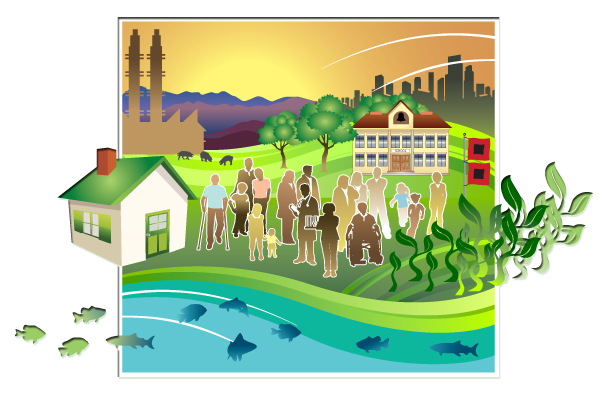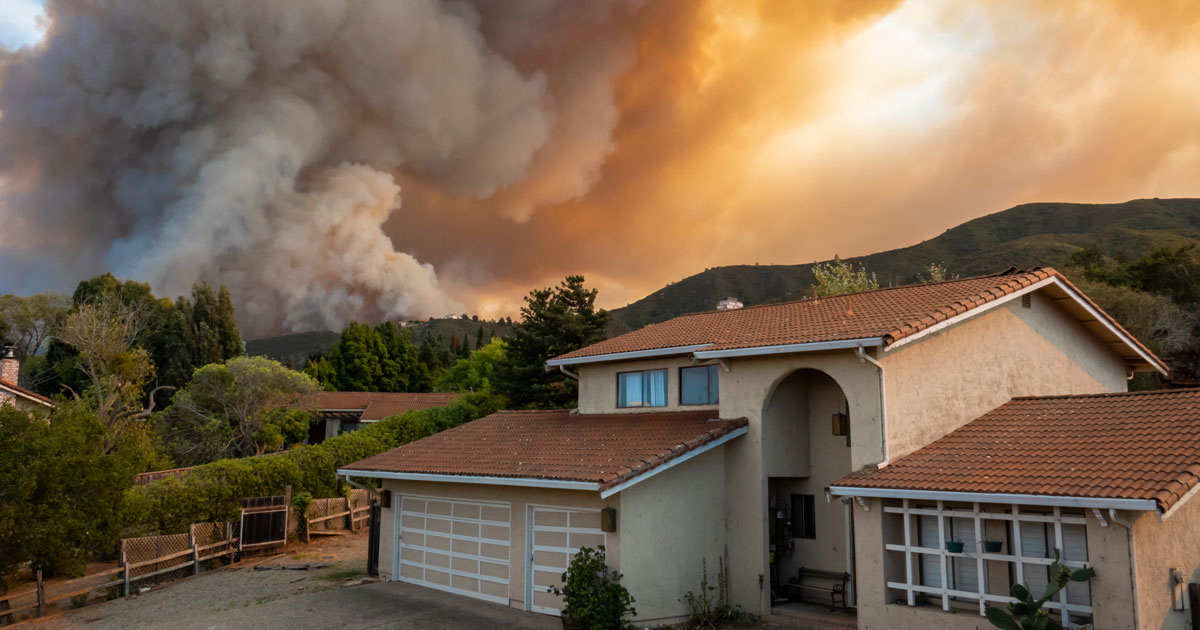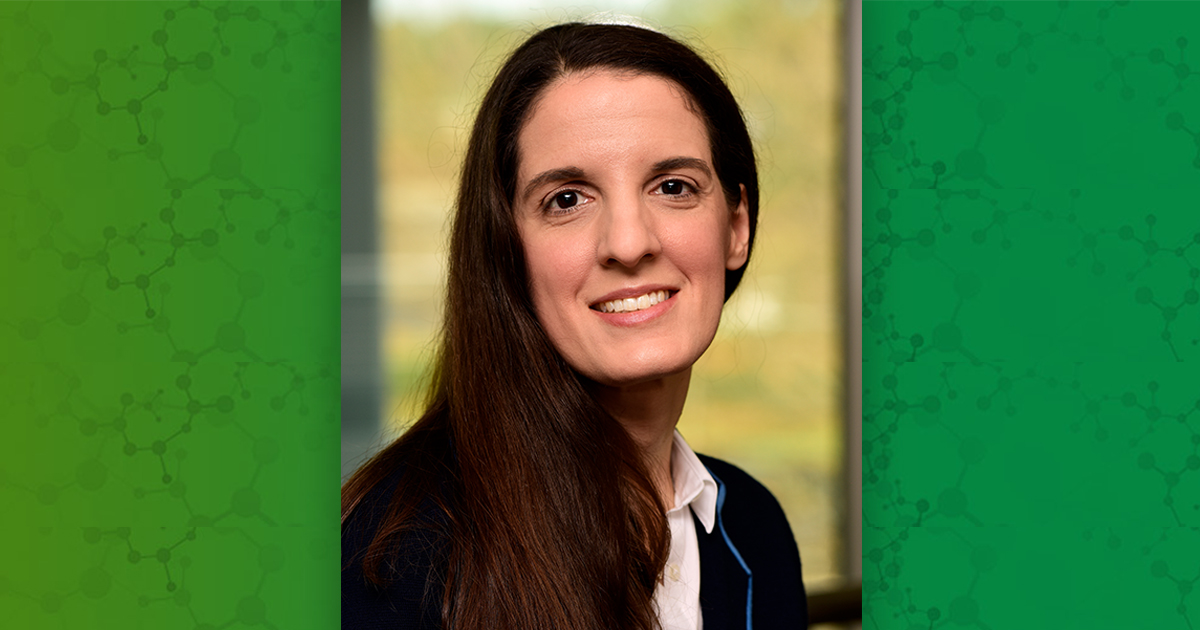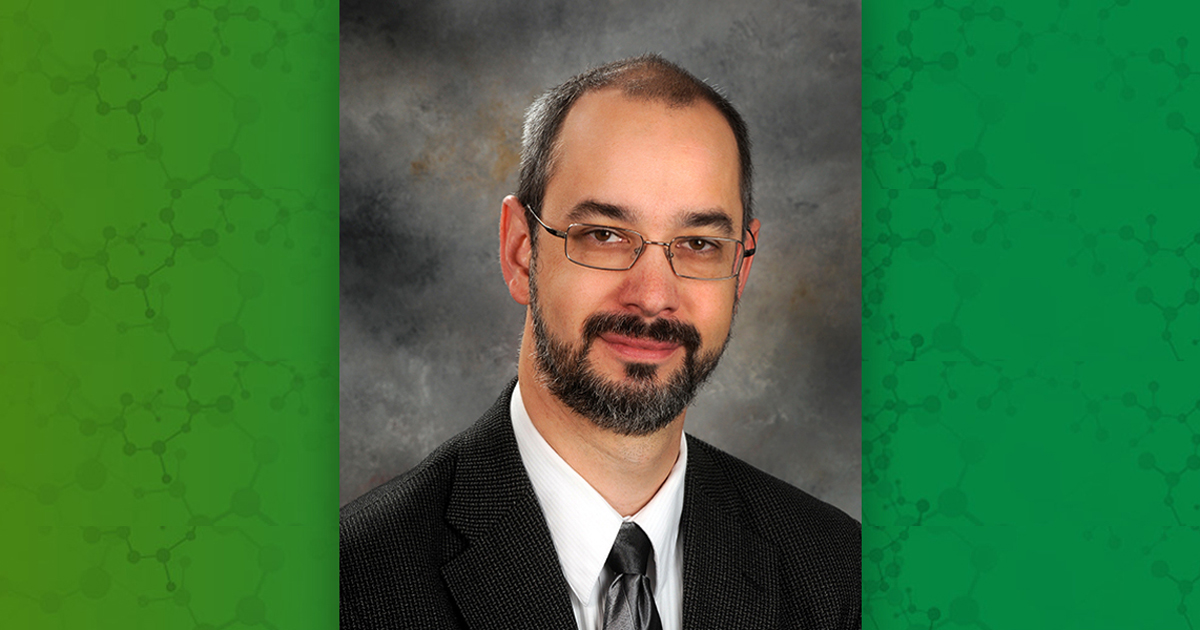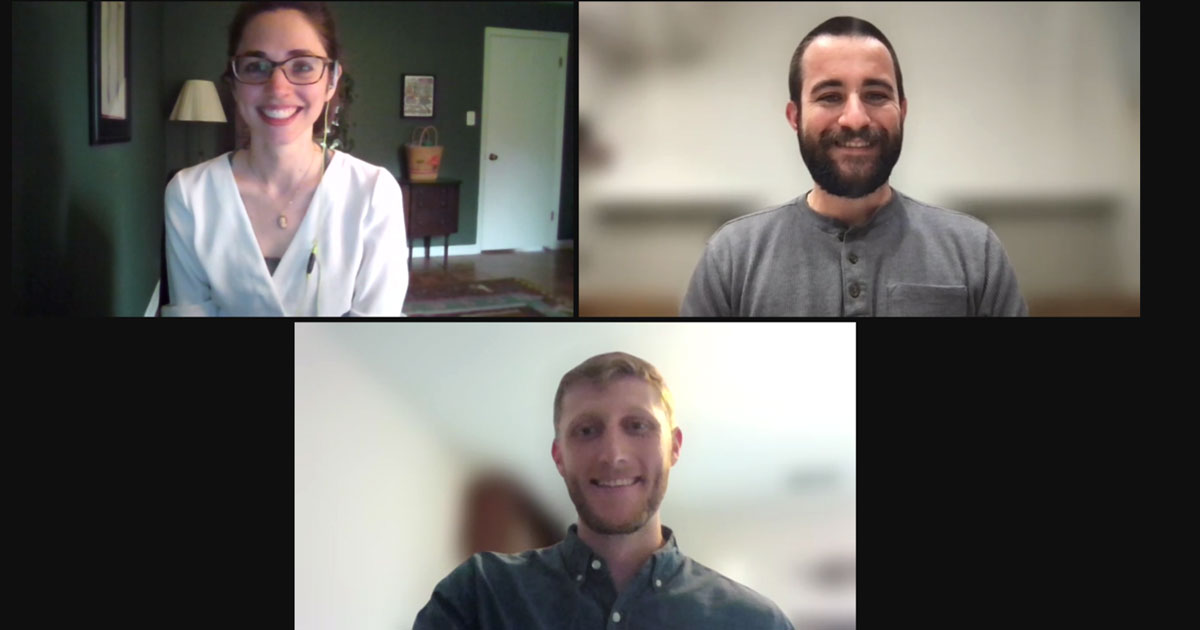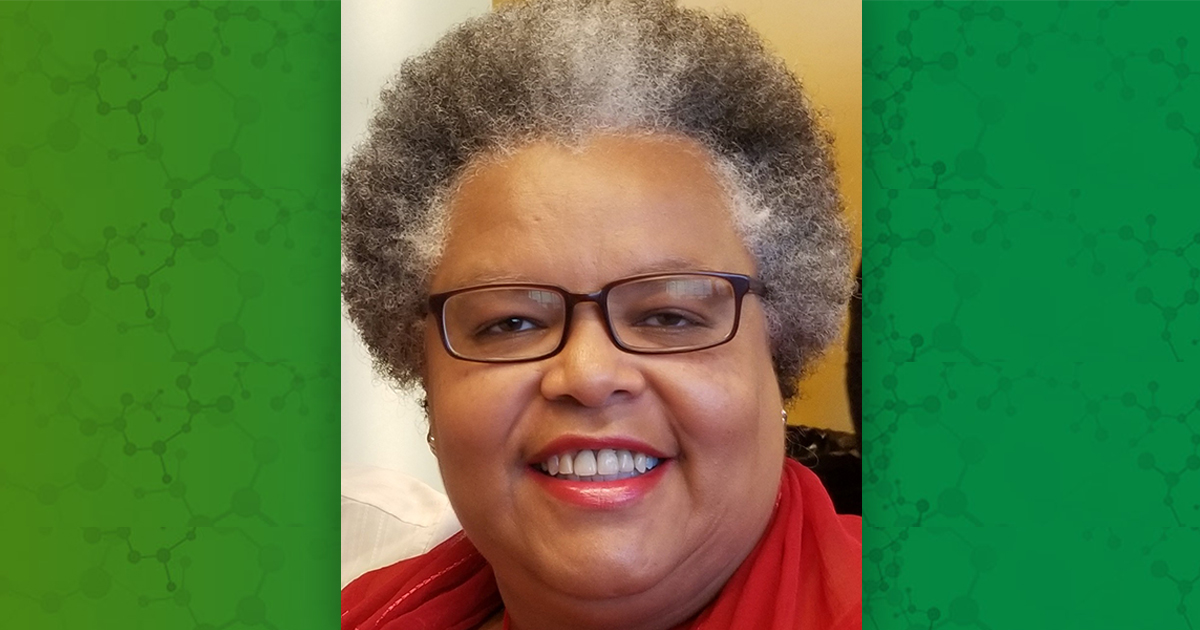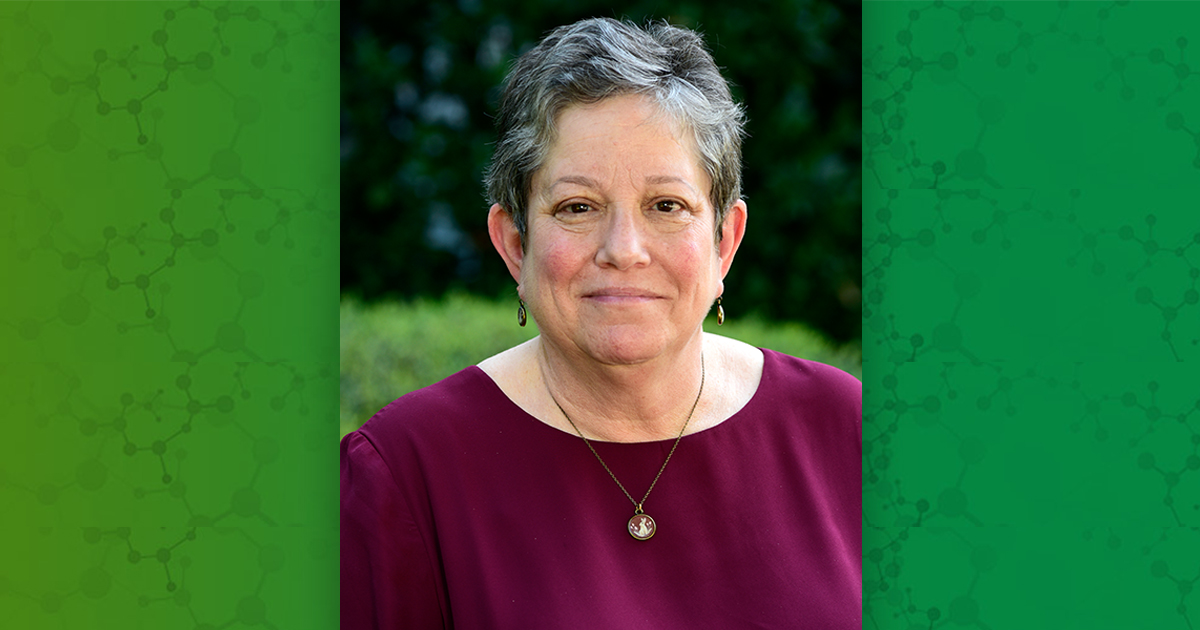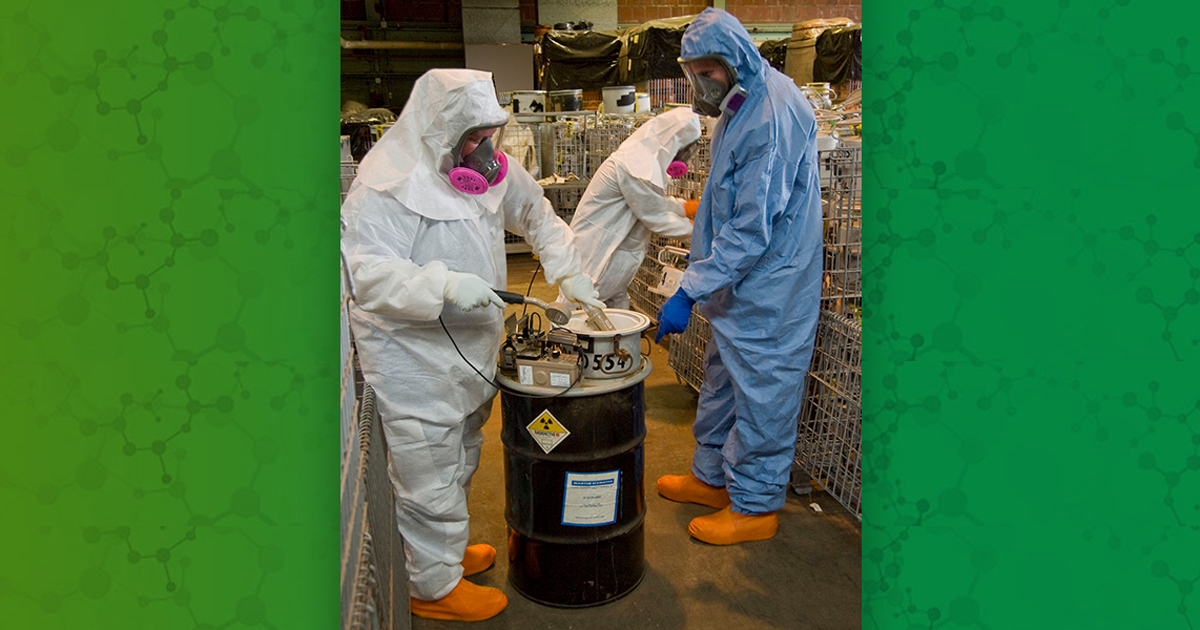School Renovations Improve Indoor Air Quality and Support Children’s Health
NIEHS-funded researchers at Johns Hopkins University determined that indoor air quality in schools in Baltimore improved after school renovations. In a paper, the team describes how they examined air quality and temperature in school buildings before and after renovations and provides details on the magnitude of improvements to indoor air quality.
Air quality in schools is a concern for children’s health, in part, because children spend a large amount of time there. Children are especially susceptible to poor health outcomes — particularly asthma — from exposure to air pollution because their lungs are still developing.
Renovating schools to improve indoor air quality may, therefore, be an effective community intervention that benefits many children in one location, particularly in underserved communities at highest risk of poor health outcomes due to environmental exposures. The January 2022 PEPH podcast on healthy buildings provides more information on health effects of indoor air quality.
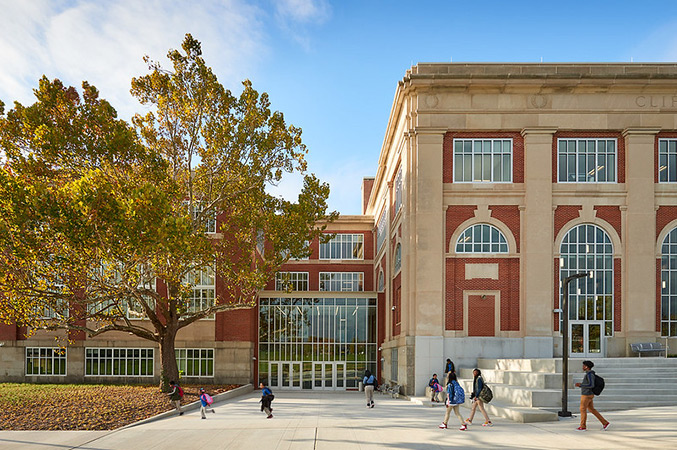
Lake Clifton Park building after school renovations. (Photo Courtesy of MCN Build, Photo Credit: Judy Davis/studioHDP)
School Renovation Program Reaches Underserved Students
The school renovations were conducted as part of the 21st Century School Building Program, established through a collaboration between Baltimore City Public Schools, the Maryland Stadium Authority, the City of Baltimore, and the State of Maryland. The program aims to improve the quality of public school buildings in Baltimore City and make a positive impact on local communities.
An independent engineering firm conducted a study of all schools in Baltimore City and assigned a score to each school based on its condition. Schools with the poorest conditions were prioritized for renovation. The schools’ population was 99% students of color, and about 94% of students received free or reduced-price lunch through the National School Lunch Program.
“We know that underserved communities are often exposed to higher levels of harmful air pollutants than other populations,” stated Meredith McCormack, M.D., M.H.S., director of the NIEHS-funded Bridging Research, Lung Health, and the Environment Collaborative Center in Children’s Environmental Health Research and Translation. “School renovation funding often overlooks urban public school districts, so these buildings already had poor ventilation and inefficient temperature regulation. But renovations can have a meaningful impact on the students’ health and well-being and that of the community.”
The 21st Century School Building Program engages the local community through regular meetings to plan school renovations. The renovation program also strives to improve the community immediately surrounding each school through the Investing in Neighborhoods and Schools to Promote Improvement, Revitalization, and Excellence program. Residents and local organizations provide input on plans for the neighborhood. Program staff create plans for changes, and the community members review the plans. The program has implemented projects such as planting trees and updating sidewalk infrastructure along the routes that children take to walk to school.
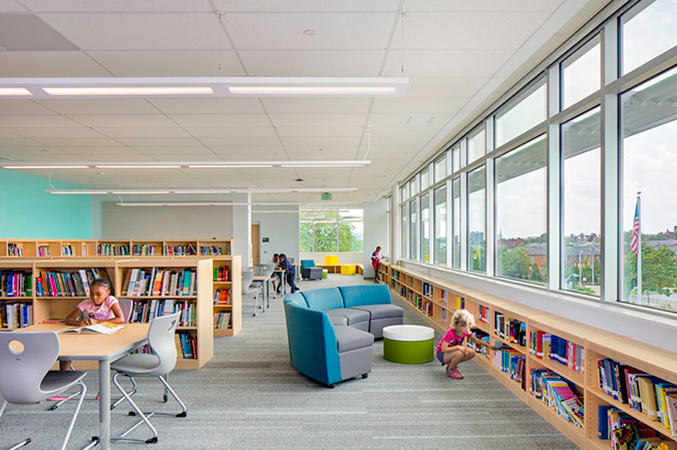
Dorothy I. Height Elementary School Media Center after school renovations. (Photo courtesy of Cho Benn Holback + Associates)
Researchers Determine Effects of Renovations on Indoor Air Quality
The researchers, who knew of the renovation program through existing connections with Baltimore City Public Schools, measured indoor air quality before renovations by sampling carbon dioxide, carbon monoxide, particulates, and temperature inside each of 29 schools. Samples were taken in each school over a two-week period three times for one year. One classroom and one common space were sampled at each school. Outdoor temperature measurements and samples of particulates were also taken in order to compare any changes in indoor samples with outdoor environmental conditions. These sampling methods were repeated after renovations were completed in seven of the schools.
Researchers compared pre-renovation and post-renovation measurements, as well as the values to standards for acceptable ranges from the American Society of Heating, Refrigerating, and Air Conditioning Engineers. They found that pre-renovation, carbon dioxide inside the schools exceeded the acceptable range 30% of the time on average for all schools. With the renovations, indoor carbon dioxide levels decreased, and they exceeded the acceptable range only 10% of the time. Given that carbon dioxide levels are a way to gauge a building’s fresh air ventilation, the results indicate that ventilation significantly improved.
The researchers also analyzed particulates and temperature before and after renovation. They found that particulate levels exceeded acceptable limits 2% of the time before renovation. After renovations, particulate matter remained below limits 100% of the time. Temperature improvements were also observed. Notably, while schools sometimes experienced temperatures above 80 degrees Fahrenheit before renovation, no schools reported excessive temperatures after renovation.
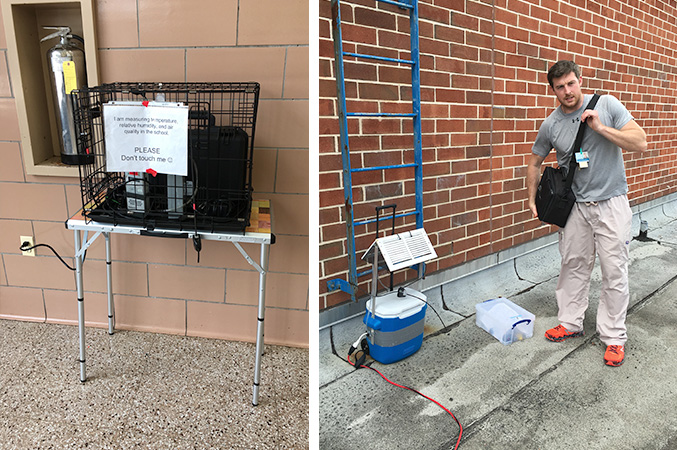
(Left) Indoor air monitoring equipment is set up inside a school. (Right) Team member Kristopher Spicer sets up outdoor air monitoring equipment. (Photos courtesy of Meredith McCormack)
“Our results show that renovating these school buildings made significant improvements in indoor air quality measurements that can have an impact on student health and even their school performance,” said McCormack. “Improved ventilation through updates to the HVAC infrastructure is particularly striking and can have a strong influence on the students’ health. The COVID-19 pandemic in particular has shed light on the importance of indoor ventilation and good air quality for health and safety. These schools’ new HVAC systems could not have come at a better time and have likely supported students’ health.”
In the future, the research team hopes to examine health outcomes among students in the renovated schools in order to determine whether improved air quality has had a positive effect on student health. Such work would help determine the public health efficacy of school renovations and might provide support for replicating this program in other communities. The researchers also continue to build on relationships with schools and community partners. They have recently started a project called Asthma CHAMPS to support asthma management through partnerships with Baltimore City Schools and the Health Department. They are also directly reaching students through an educational program, the Lung Health Ambassador Program, and are planning to build a Lung Health Corps of volunteers to advance advocacy for children’s environmental health.
Request for Information on U.S. Federal Environmental Justice Strategy
The U.S. Department of Health and Human Services (HHS) released a Request for Information (RFI) on the 2022 HHS Environmental Justice Strategy and Implementation Plan Draft Outline The public is invited to respond to specific questions on the six proposed strategies and related priority areas and to submit additional strategies. The proposed strategic elements are:
The plan will guide how HHS addresses environmental health disparities in disadvantaged communities. The public’s comments will be integrated into the plan as it is developed. Comments may be submitted by email until May 19. Interested respondents may direct questions to LaToria Whitehead, Ph.D., M.P.H., Senior Public Health Analyst.
PEPH Webinar Focuses on Language Justice in Public Health
The PEPH March webinar, Promoting Environmental and Occupational Public Health Through Language Justice, focused on how academic and training program partners can empower community members by communicating with them in their language. The presenters, Jessica Martinez, BJ Cummings, M.S., and Lisa Hayward, Ph.D., spoke about why language is considered part of social justice and about the challenges and benefits associated with language for community-engaged research efforts. Martinez, the co-executive director of the National Council for Occupational Safety and Health, leads efforts related to language justice to ensure accessibility and inclusivity of programs for diverse workers. She described language justice and practices that can promote it, such as having interpreters and having only one person speak at a time. Cummings and Hayward then spoke about language justice during COVID-19, covering issues such as advances in technology and the digital divide. They also spoke about their experience working with established partners to put out public health messaging. Learn more about the webinar.
NIEHS-funded National Network Focuses on Translating Children’s Environmental Health Research to Stakeholders
The new NIEHS-funded Collaborative Centers in Children’s Environmental Health Research and Translation builds on the institute’s research portfolio on children’s environmental health by focusing on translating research findings to stakeholders. The six new centers have expertise from disciplines such as environmental health, communications, and dissemination and implementation science that enables them to create actionable steps to move research into practice. The centers were funded in late 2021 and focus on a wide variety of topics related to children’s environmental health. For example, the researchers at the Philadelphia Regional Center for Children’s Environmental Health address hazards such as exposure to endocrine disrupting chemicals and aim to protect children who live in vulnerable communities from environmental health exposures. Marilyn Howarth, M.D., is the leader of the center’s translation core and her work on lead exposure was featured in the March 2022 newsletter. The Bridging Research, Lung Health, and the Environment (BREATHE) center at Johns Hopkins University focuses on studying the effects of the environment on children’s lung health. Meredith McCormack, M.D., M.H.S., a co-director of the center, is featured in this month’s story on school renovations and clean air, and Panagis Galiastsatos, M.D., M.H.S., one of the center’s leaders, heads the Lung Health Ambassadors program, which was featured in the August 2021 newsletter.
Summer Safety Resources for Children
Although summertime gives children many opportunities to spend time outdoors, there is a higher risk of certain environmental health concerns during the summer, such as those posed by higher outdoor temperatures and germs in pools. Healthy and Safe Swimming Week, which occurs the week before Memorial Day each year, is May 23 – 29, 2022, and National Heat Safety Awareness Day is May 27, 2022.
The President’s Task Force on Environmental Health Risks and Safety Risks to Children has resources on summer safety for children, which can help parents and other adults ensure children’s safety while they recreate outdoors. Examples of resources include:
The CDC has more information about diarrhea and germs in recreational water and a communications toolkit for healthy and safe swimming.
You can also read a February 2022 study, published in the journal Environmental Health Perspectives, on Extreme Temperatures and Children’s Emergency Department Visits, which shows children are more likely to visit the emergency room for any reason on extremely hot and moderately hot days.
United Nations Releases Report on Impacts of and Adaptation to Climate Change
The Intergovernmental Panel on Climate Change, the United Nations body for assessing the science related to climate change, finalized, in February, the second of three parts of the 2022 Climate Change Assessment, Climate Change 2022: Impacts, Adaptation, and Vulnerability. The report covers current and predicted future effects on physical and mental health from climate change, reporting specifically on observed and projected impacts and risks, adaptation measures and enabling conditions, and climate resilient development. The full assessment will be released later this year.
The Intergovernmental Panel on Climate Change provides policymakers with a regular scientific assessment on climate change, its implications, and potential future risks, and suggests adaptation and mitigation options. The report has related resources such as a summary for policymakers, a technical summary, fact sheets, and FAQs. In the U.S., the Office of Climate Change and Health Equity has been charged with protecting people’s health from the effects of climate change, and the report underscores the importance of the office’s work. Read the full statement from the U.S. Department of Health and Human Services on the report.

PEPH Grantee Highlight
Gary Adamkiewicz, Ph.D.
As addressed in the feature story, infrastructure of buildings can affect indoor air quality. Gary Adamkiewicz, Ph.D., studies indoor air pollution in homes in low-income communities. He and his team aim to understand how homes contribute to residents’ health disparities, and what solutions can address these issues.
Funding Opportunities
Emergency Award: RADx-UP Community-Engaged Research on Rapid SARS-CoV-2 Testing Among Underserved and Vulnerable Populations (U01 Clinical Trial Optional)
This FOA provides an expedited funding mechanism to support Phase III of the Rapid Acceleration of Diagnostics – Underserved Populations (RADx®-UP) initiative. Research will implement and evaluate SARS-CoV-2 rapid diagnostic testing in communities experiencing health disparities. Research projects will develop rapid testing implementation strategies among both unvaccinated and vaccinated individuals that leverage community relationships and cultural knowledge, specifically with respect to community entry, trust building, and culturally appropriate ways of engaging and tapping community held knowledge about best practices to reduce rapid testing barriers at various points-of-care and make best uses of test kits and results.
Deadline: May 2, 2022
Emergency Awards: RADx®-UP - Social, Ethical, and Behavioral Implications (SEBI) Research on Disparities in COVID-19 Testing Among Underserved and Vulnerable Populations (U01 Clinical Trial Optional)
This FOA provides an expedited funding mechanism to support Phase III of the Rapid Acceleration of Diagnostics – Underserved Populations (RADx®-UP) initiative. Successful SEBI research projects will address the evolving challenges of the pandemic with a focus on understanding and addressing barriers to COVID-19 testing in underserved and vulnerable populations, as well as the secondary impacts of testing mandates combined with other mitigation measures. Psychological and communication science interventions to improve uptake of testing and vaccination are also of interest. Applications should inform the distribution, accessibility, acceptability, and use of COVID-19 testing resources, including, but not limited to, rapid tests administered in multiple settings, including outside of healthcare contexts (e.g., within homes, schools, and workplaces). Addressing the roles of interpersonal and structural racism and discrimination and other factors that may contribute to observed disparities is also important. Research is needed to examine institutional decisions, practices, and biases that can be modified to recognize and better meet communities’ preferences and goals related to COVID-19 testing.
Deadline: May 2, 2022
Intervention Research to Improve Native American Health (R01 Clinical Trial Optional)
Supports research on interventions to improve health in Native American (NA) populations. This includes 1) etiologic research, where there is a significant gap in knowledge, that will directly inform intervention development or adaptations, 2) research that develops, adapts, or tests the efficacy or effectiveness of health promotion and disease prevention interventions, 3) research that tests culturally informed treatment or recovery interventions and 4) where a sufficient body of knowledge on intervention efficacy exists, research on dissemination and implementation that develops and tests strategies to overcome barriers to the adoption, integration, scale-up, and sustainability of effective interventions. Through this initiative, intervention and related research is sought to build upon community knowledge, resources, and resilience to test science-based, culturally appropriate solutions to reduce morbidity and mortality through identification and remediation of precursors to diseases and disorders and through culturally informed treatment.
Deadline: May 17, 2021; May 17, 2022; May 17, 2023
Letter of Intent: Due 30 days prior to the application due date
Limited Competition: Transformative Research to Address Health Disparities and Advance Health Equity at Minority Serving Institutions (U01 Clinical Trial Optional)
Supports collaborative investigative teams or individual scientists who propose unusually innovative research projects, which, if successful, would have a major impact in developing, implementing, or disseminating innovative and effective interventions to prevent, reduce, or eliminate health disparities and advance health equity. No preliminary data are required. Projects must clearly demonstrate, based on the strength of the logic, a compelling potential to produce a major impact in addressing health disparities and advancing health equity. Applicants are encouraged to carefully review the Answers to Frequently Asked Questions and view slides from a pre-recorded pre-application webinar to help prepare an application for this FOA. Additionally, an upcoming pre-application technical assistance webinar will take place on April 13, 2022. Registration is open.
Deadline: May 23, 2022
Support for Research Excellence Award (R16 Clinical Trial Not Allowed)
The purpose of Support for Research Excellence (SuRE) awards is to provide research grant support for faculty investigators who have prior experience in leading externally funded, independent research but are not currently funded by any NIH Research Project Grants with the exception of SuRE or SuRE-First awards. Awards are open to institutions that receive no more than $6 million per year from NIH Research Project Grants and additionally enroll at least 25 percent of undergraduate students supported by Pell grants or are an accredited medical/health professional school with a historical mission statement that explicitly states that it was founded to educate students from nationally underrepresented backgrounds.
Deadlines: May 26, 2022; May 26, 2023
Accelerating the Pace of Child Health Research Using Existing Data From the Adolescent Brain Cognitive Development (ABCD) Study (R01-clinical Trial Not Allowed)
Supports activities proposing to conduct analyses of existing ABCD Study data to accelerate the pace of research on child health and development, including: cross-sectional and/or longitudinal analyses; development of new or advanced statistical methods; and/or integration of ABCD data with other existing datasets that share common data elements. NIEHS is interested in applications that will use ABCD data resources to examine the contribution of environmental exposures on brain and development and to identify sensitive time windows of development that may confer individual susceptibility and also to identify protective factors that may mitigate environmental-induced changes. An R21 funding opportunity is also open.
Deadlines: June 5, 2022; October 5, 2022; February 5, 2023
Notice of Special Interest (NOSI): Emerging and Existing Issues of Coronavirus Disease 2019 (COVID-19) Research Related to the Health and Well-being of Women, Children and Individuals With Physical And/Or Intellectual Disabilities
Provides an avenue for researchers to pursue funding to conduct research addressing emerging and existing COVID-related issues among pregnant and lactating people, infants, children and adolescents, and individuals with physical and/or intellectual disabilities. NIEHS is interested in research focused on better understanding the role of environmental exposures on the multitude of factors surrounding the COVID-19 pandemic in relation to pregnancy, children and adolescent health and well-being, reproductive disorders, metabolic diseases, cancers, cardiovascular disease, and other disease conditions. Applicants responding to this NOSI are strongly encouraged to describe plans for the rapid sharing of data and results as well as innovative data analytics approaches. The sharing of COVID-related data and resources and effective communication of results are a high priority of the NIH.
Deadline: June 5, 2022
Notice of Special Interest (NOSI): Epidemiologic Studies in Asian Americans, Native Hawaiians, and Pacific Islanders (Parent R01 Clinical Trial Not Allowed)
Encourages fundamental epidemiological research geared toward understanding the inter-relationships of biological, lifestyle/behavioral, environmental, and sociocultural factors and how these factors may impact health disparities and outcomes in Asian American, Native Hawaiian, and Pacific Islander subpopulations. Epidemiological inference is enhanced with variation in study designs; therefore, investigators may leverage a range of design methods in response to this NOSI, including electronic health record databases, registries, cohort studies, and cross-sectional surveys. Applications may propose leveraging existing studies or data, or may propose new data collection. To be considered responsive to this NOSI, applicants must propose to study at least one specific subpopulation of Asian Americans, Native Hawaiians, and Pacific Islanders. NIEHS applications to this funding opportunity occur through Research Project Grant (Parent R01 Clinical Trial Not Allowed), Addressing the Etiology of Health Disparities and Health Advantages Among Immigrant Populations (R01 Clinical Trial Not Allowed), and The Role of Work in Health Disparities in the U.S. (R01 Clinical Trials Optional).
Deadlines: February 5, 2022; June 5, 2022
Notice of Special Interest (NOSI): Promoting Health, Safety, and Recovery Training for COVID-19 Essential Workers and Their Communities
Supports partnerships between Worker Training Program (WTP) recipients and local community organizations in communities highly impacted by COVID-19 to increase the education and awareness of COVID-19 health risks and promote the integration and connectedness to needed public health resources such as testing, contact tracing, and the adoption of effective infection control measures. This NOSI is open to current WTP awardees who already have partnerships with local worker centers and community organizations in underserved and disadvantaged communities with COVID-19 transmission rates that are higher than the national average. Partnerships with other NIEHS recipients are encouraged if the collaboration will meet the aims of the application.
Deadline: June 6, 2022
Revolutionizing Innovative, Visionary Environmental Health Research (RIVER) (R35 Clinical Trial Optional)
The RIVER program is intended to invest in people rather than projects; rewarding individuals from the NIEHS recipient community who demonstrate a broad vision and potential for continuing their impactful environmental health research and who are most likely to benefit from a program emphasizing flexibility and sustained support. Only single principal investigator applications are allowed. Key features and benefits of the program fall into two large categories: 1) freedom from traditional focused specific aims and a structured research plan which will enable investigators to pursue new directions in their research as they arise throughout the funding period, and 2) the ability to devote increased effort to research, mentoring, and scientific service due to reduced time spent writing and managing multiple grant applications and awards.
Deadline: June 9, 2022
Letter of Intent: Due 30 days prior to the application due date
Lasker Clinical Research Scholars Program (Si2/R00 Clinical Trial Optional)
The Lasker Clinical Research Scholars program will offer applicants the opportunity to compete for a unique combination of intramural and extramural resources for clinical research. The program will support a small number of exceptional clinical researchers in the early stages of their independent careers to promote their development as fully independent scientists. The program combines a period of research experience as a tenure-track investigator in the Intramural Research Program with additional years of independent financial support, either within the Intramural Research Program or at an extramural research institution. Successful applicants will receive support in two phases: 1) support for scholars in the Intramural Research Program for up to 5 years, with the possibility of an extension for an additional 2 years; and 2) either continued Intramural Research Program support, or up to 3 years of support to continue research as an independent clinician scientist at an extramural institution.
Deadline: June 24, 2022
Research Enhancement Award Program (REAP) for Health Professional Schools and Graduate Schools (R15 Clinical Trial Not Allowed)
The REAP program will enable qualified scientists to receive support for small-scale research projects. It is anticipated that investigators supported under the REAP program will benefit from the opportunity to conduct independent research; that the grantee institution will benefit from a research environment strengthened through REAP grants; and that students at recipient institutions will benefit from exposure to and participation in scientific research in the biomedical sciences so that they consider careers in biomedical research. The REAP funding opportunity emphasizes the engagement and inclusion of health professional, undergraduates, and/or graduate students in research. Since diversity strengthens the research environment, REAP grantees are encouraged to recruit and include students from diverse backgrounds, including those from groups underrepresented in the biomedical research workforce. NIEHS will accept applications describing research projects that will have a defined impact on the environmental health sciences and must have a research focus on exposure-health related responses from environmental agents within the mission interest of the NIEHS.
Deadlines: June 25, 2022; October 25, 2022
Implementation Research to Reduce Noncommunicable Disease Burden in Low- and Middle-income Countries and Tribal Nations During Critical Life Stages and Key Transition Periods (R01 Clinical Trial Optional)
Supports innovative approaches to identifying, understanding, developing, and implementing strategies for overcoming barriers to the adoption, adaptation, integration, scale-up, and sustainability of evidence-based interventions, tools, policies, and guidelines. In addition, studies to advance dissemination and implementation research methods and measures into application are encouraged. Specifically, this FOA invites applications that propose interventions targeting critical life stages (e.g., infancy, childhood, adolescence, pregnancy, older adults) and key transitions between life stages to reduce health risk and/or enhance positive health and lifestyle behaviors. NIEHS is interested in applications that focus on the implementation of interventions that address environmental noncommunicable disease risk factors (e.g., air pollution, disaster risks attributed to climate change, etc.) in one or more critical life stages.
Deadline: July 27, 2022




